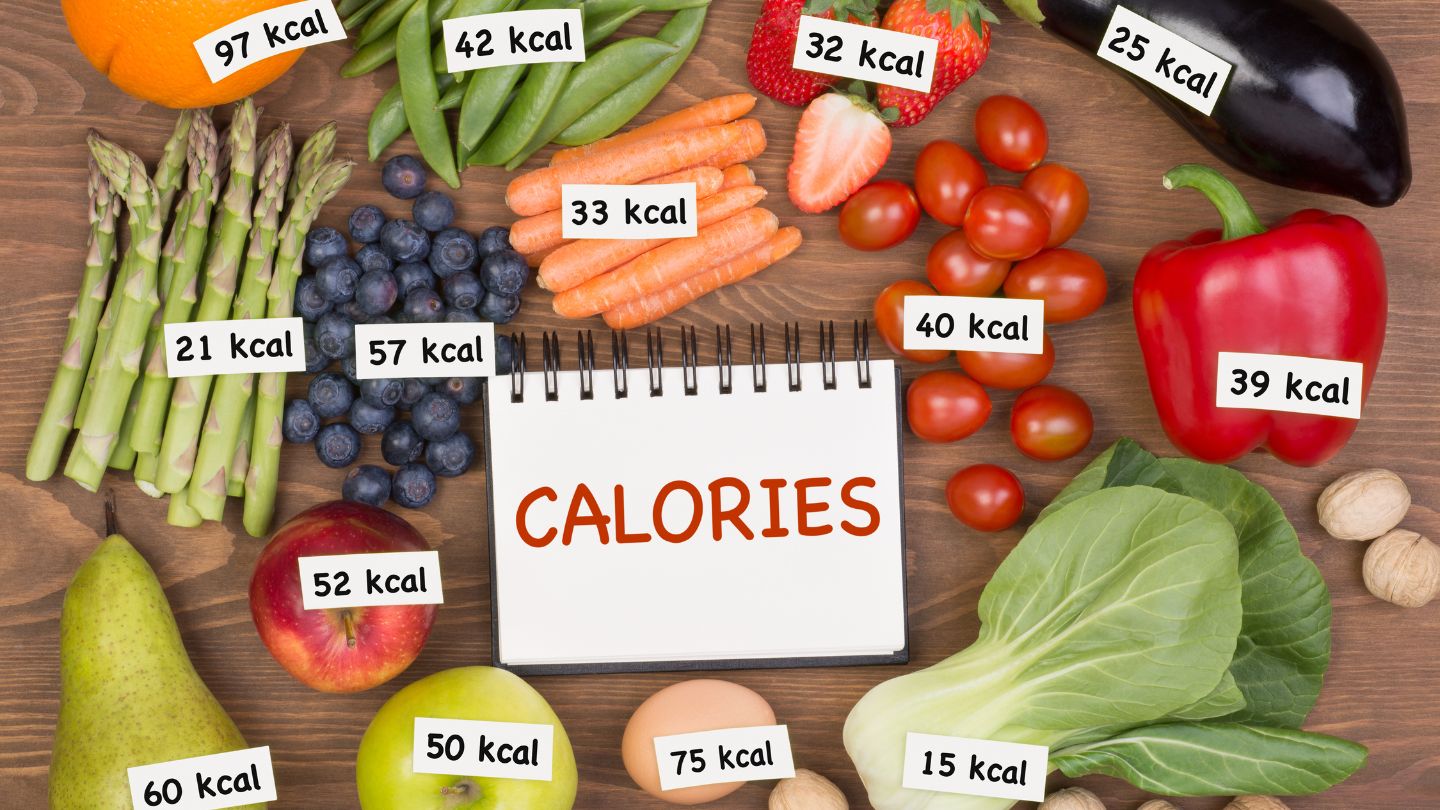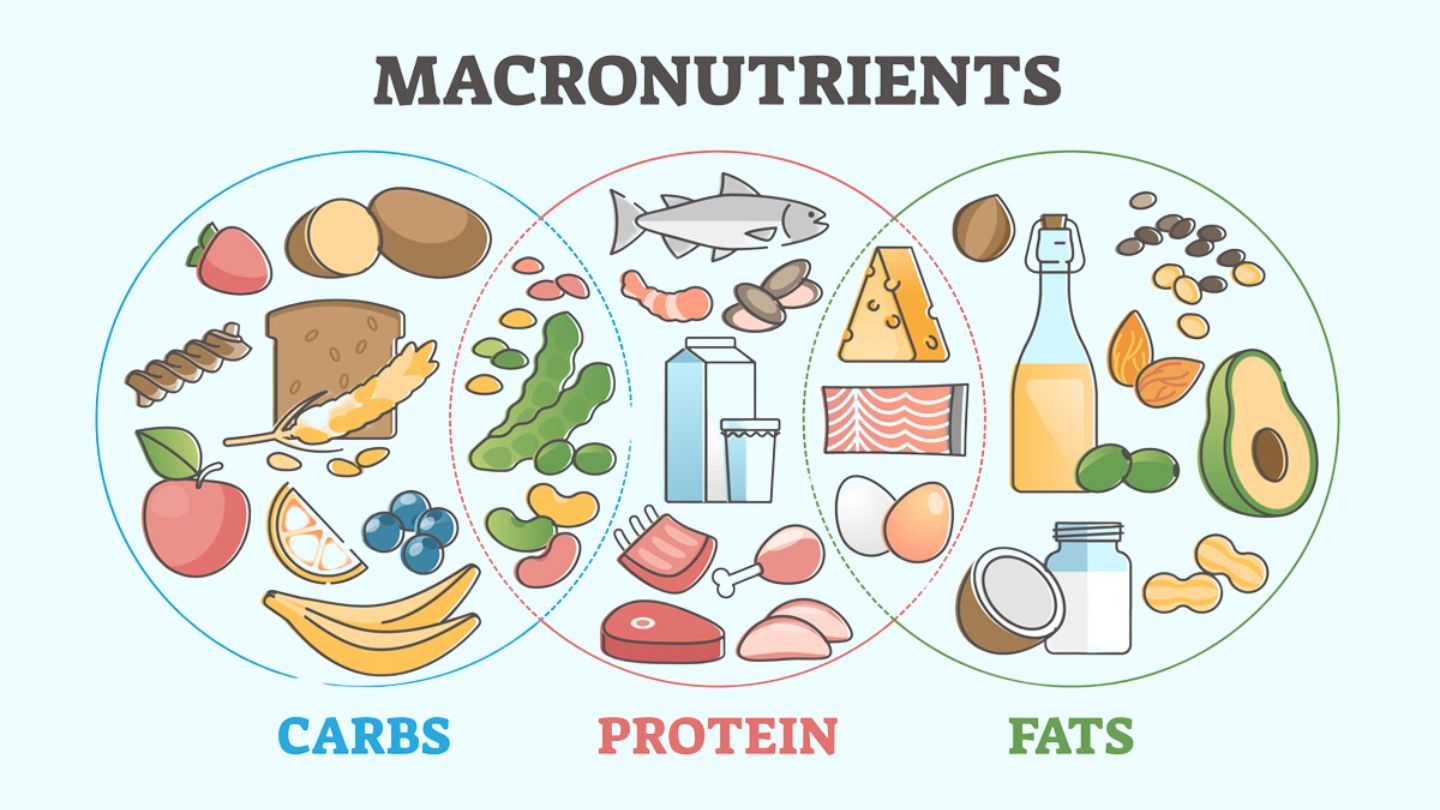Losing weight effectively relies not only on creating a calorie deficit but also on understanding the underlying medical factors that affect your metabolism and body composition. At Atlanta Medical Institute, we offer personalized, medically supervised weight loss programs that consider hormones, metabolism, and lifestyle to help you lose weight safely and effectively.
Key Points
- Know your calorie needs and eat fewer calories to lose weight.
- A balanced diet with macronutrients, especially protein and low-processed foods, is important for weight management.
- Avoid empty calories found in junk foods, processed items, and sugary drinks that provide energy without nutritional benefits and can lead to weight gain and negative health effects.
- Exercising and tracking calories is part of a weight loss plan.
Caloric Intake
Caloric intake refers to the number of calories an individual consumes daily. Calories are the energy units the body uses to function. Understanding your caloric intake is important for a healthy weight.
Caloric Needs for Weight Loss
Knowing your individual caloric needs is the base of a weight loss plan. It’s not just about cutting calories; it’s about understanding how many calories your body needs. At Atlanta Medical Institute, we consider metabolic rate and energy expenditure to create a personalized plan for your body’s unique needs.
The number of calories we need varies based on age, gender, and activity level. Younger and active individuals need more calories to keep up with their energy demands and maintain weight. As we age, our metabolism slows down, and we need fewer calories.
You need to create a calorie deficit by eating less or exercising more to lose weight— both are part of weight management. At Atlanta Medical Institute, we help you understand how much calorie deficit is appropriate for your specific body and goals, ensuring a safe and effective weight loss journey.
Factors Affecting Caloric Needs (Age, Sex, Weight)
Age: As we age, our metabolism slows, so we need fewer calories. For example, a 20-year-old male may need 2500 calories a day to maintain his weight, while a 50-year-old male may only need 2000 calories. This decrease in caloric needs is due to loss of muscle mass and slower metabolism.
Sex: Men need more calories than women. This is because men have more muscle mass and higher basal metabolic rates. However, activity level and body composition can also affect caloric needs. For example, an active woman may need more calories than a sedentary man.
Weight: Your current weight affects your caloric needs. Individuals with higher body weight need more calories to maintain their weight compared to those with lower body weight. This is because bigger bodies burn more energy to do daily activities. As you lose weight, your caloric needs will decrease; you need to adjust your daily calorie intake to lose or maintain weight.
Daily Calorie Intake Calculator
Your Basal Metabolic Rate (BMR) is key to your daily calorie count. Your BMR is the number of calories needed to sustain basic physiological processes such as breathing and temperature regulation when at rest. Use the Harris-Benedict equation to calculate your BMR. This considers age, sex, height, and weight.
After calculating your BMR, you need to calculate your Total Daily Energy Expenditure (TDEE), by multiplying your BMR with an activity level multiplier that matches how much physical activity you do. The result will give you an idea of how many calories you need to maintain your current weight.
Creating a Calorie Deficit: What Is Enough?
Creating a calorie deficit by consuming fewer calories than your body burns is essential for weight loss. However, it is crucial to ensure that the calorie deficit is safe and sustainable. At Atlanta Medical Institute, we help you find the right balance, combining medical supervision, personalized nutrition, and physical activity for long-term success.
Reducing your daily intake by 500-750 calories can lead to a safe and steady weight loss of 1-2 pounds a week. This gradual weight loss is more likely to last than quick weight loss, which is often temporary.
Macronutrients in Weight Loss
In the weight loss journey, understanding macronutrients—carbohydrates, fats, and proteins—is critical. At Atlanta Medical Institute, our nutritional experts guide you in creating balanced meal plans that support your health and weight loss goals. Our recommendations include appropriate calorie counts, optimal caloric distribution throughout the day, and quality food choices.
Hormones and Weight Control
Hormones play a significant role in weight management. As a functional medicine clinic, Atlanta Medical Institute offers hormone evaluation and therapies, such as testosterone replacement therapy and bio-identical hormone therapy, where applicable. Proper hormone balance can help regulate metabolism and promote fat loss while preserving muscle mass.
Common Foods and Calorie Intake
Knowing the calorie content of common foods can help you make better choices and manage your daily calorie intake. Here is a list of everyday foods and their approximate calories:
Fruits:
Apple (1 medium): 95
Banana (1 medium): 105
Vegetables :
Broccoli (1 cup) : 5
Carrots (1 cup) : 45
Proteins:
Chicken breast (6 oz): 220
Salmon (6 oz): 350
Grains:
Brown rice (1 cup): 110
Dairy:
Milk (1 cup): 130
Greek yogurt (1 cup): 100
Exercise for Weight Loss
Exercise is key to weight loss. At Atlanta Medical Institute, we combine exercise guidance with dietary changes to help you achieve your goals. Regular exercise contributes to sustainable weight loss and long-term health.
Tips for Sustainable Weight Loss
Losing weight and keeping it off can be a challenging journey, but with the right strategies, entirely achievable. Here are practical tips to help you lose weight sustainably:
Set realistic goals: Aim to lose 1-2 pounds per week. This steady pace is more sustainable and less likely to lead to weight regain.
Eat a balanced diet: Focus on a diet rich in fruits, vegetables, whole grains, and lean proteins. These nutrient-dense foods help you feel full and satisfied while eating fewer calories.
Track your calorie intake: Use a food diary or an app to monitor your calorie intake. This helps ensure you eat fewer calories than you burning, which is crucial for weight loss.
Stay hydrated: Drink water to control your appetite and keep you feeling full. Aim for at least eight cups of water a day.
Get enough sleep: Quality sleep is essential for weight loss. Aim for 7-9 hours of sleep per night to support your weight loss efforts.
Be mindful of portion sizes: Use measuring cups or a food scale to keep your portions in check. This can help you avoid overeating and maintain your calorie deficit.
Incorporate physical activity: Regular exercise is key to losing weight and keeping it off. Aim for at least 150 minutes of moderate intensity exercise each week.
Caloric Intake for Weight Maintenance and Gain
Understanding your caloric needs is not only important for weight loss but also for maintaining or gaining weight:
Weight Maintenance: You need to consume the same number of calories that your body burns to maintain your current weight. Use a calorie calculator to determine your daily calorie needs based on your age, sex, weight, height, and activity level.
The Importance of Calorie Counting
Calorie counting is a powerful tool for managing your weight. Here is why it is important:
Accurate Calorie Intake: By counting calories, you can accurately track the calories you consume. This helps ensure you eat fewer calories than you burn, which is essential for weight loss.
Weight Loss: Calorie counting helps create a calorie deficit, leading to weight loss. By consistently eating fewer calories than your body needs, you can achieve and maintain weight loss.
Improved Nutrition: Tracking your calories can also improve your overall nutrition. It encourages you to choose nutrient-dense foods like fruits, vegetables, whole grains, and lean proteins, which support your health and weight loss goals.
Increased Awareness: Calorie counting increases your awareness of your eating habits. By identifying patterns and habits that may be hindering your weight loss efforts, you can make more informed choices.
Final Thoughts
Weight loss requires a comprehensive approach that includes understanding your caloric needs, following a balanced diet, and engaging in regular exercise. At Atlanta Medical Institute, we provide medically supervised weight loss programs, tailored to your body’s specific needs. With our personalized approach, you can achieve safe, sustainable weight loss while improving your overall health.
FAQs
Calorie intake weight loss?
Create a daily calorie deficit of 500-1000 calories to lose weight effectively. This typically leads to a weight loss of 1-2 pounds per week, which is a healthy and sustainable rate.
Why is tracking calories important?
Tracking calories helps provide accountability and awareness of your eating habits. It enables you to make informed adjustments and stay on track with your weight loss goals. Using apps or tools to monitor your calorie intake can make the process easier and more effective.
What role does exercise play in weight loss?
Exercise burns calories, boosts metabolism, and improves overall health. Regular physical activity combined with a healthy diet, contributes to achieving and maintaining a healthy weight.
Can I lose weight without exercising?
While it is possible to lose weight through calorie restriction alone, exercise provides significant benefits by increasing calorie burn and helping preserve muscle mass. Combining exercise with dietary changes is the most effective approach to long-term weight management.
What types of food should I prioritize for weight loss?
Focus on nutrient-dense, whole foods such as fruits, vegetables, lean proteins, whole grains, and healthy fats. These foods provide essential nutrients while helping you feel full and satisfied, making it easier to maintain a calorie deficit.
What are empty calories and how do they affect weight loss?
Junk foods, processed items, and sugary drinks are full of empty calories that provide energy without nutritional benefits. This can lead to weight gain and negative health effects. Avoiding empty calories and focusing on nutrient-dense foods can help promote overall health and support weight loss.
Over 50,000 patients in the past 10 years have lost over one million pounds with our tools and our team!







